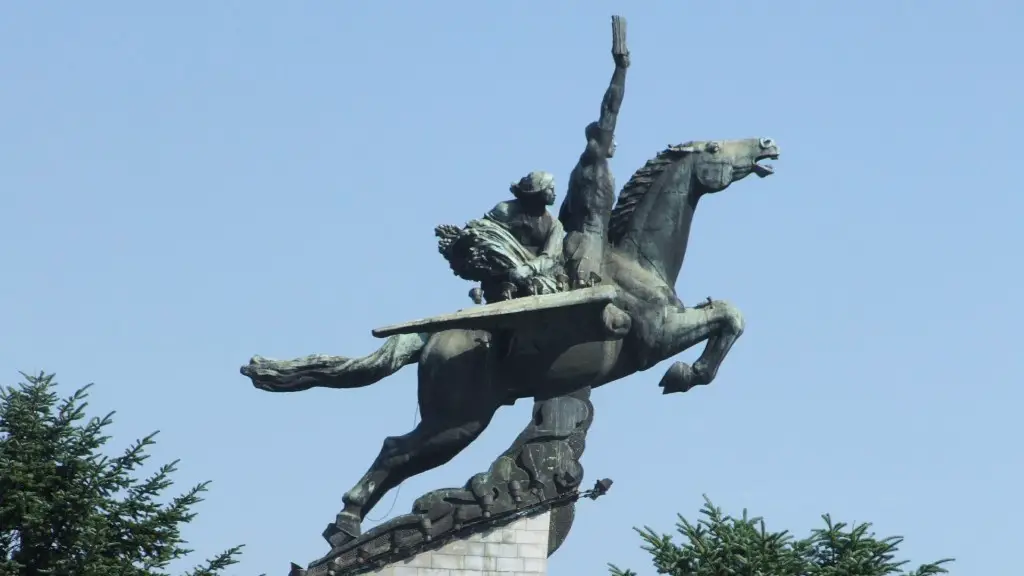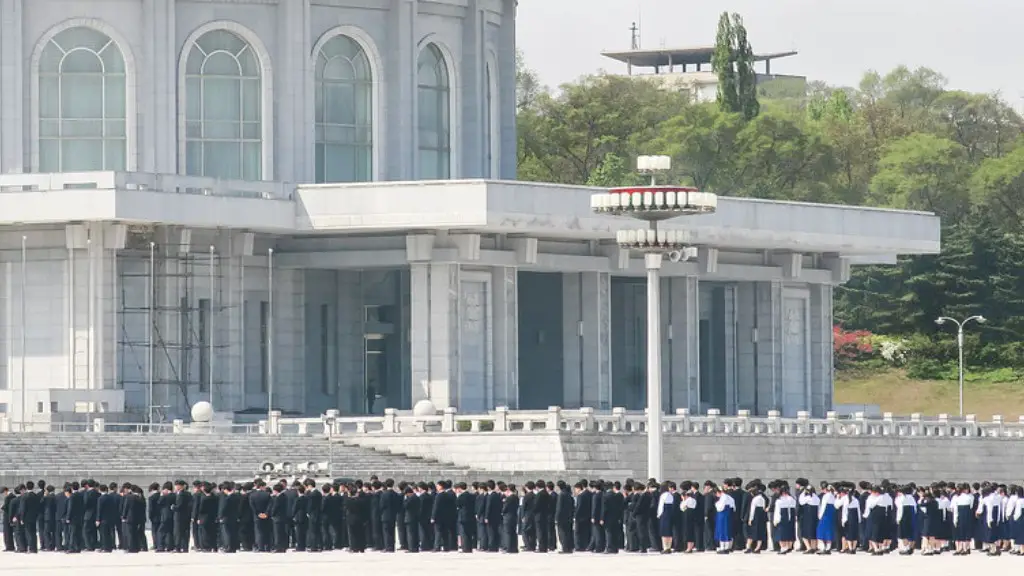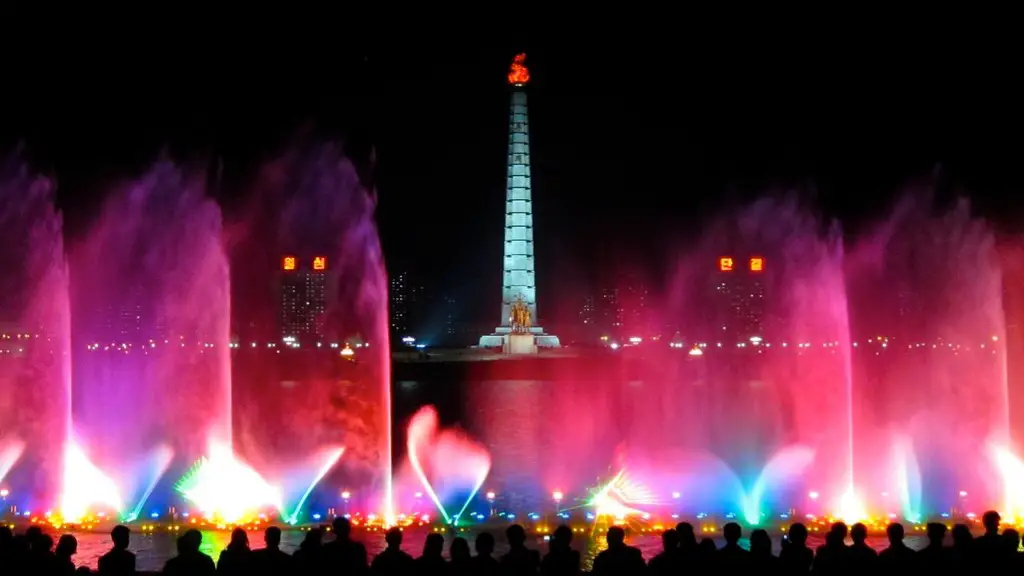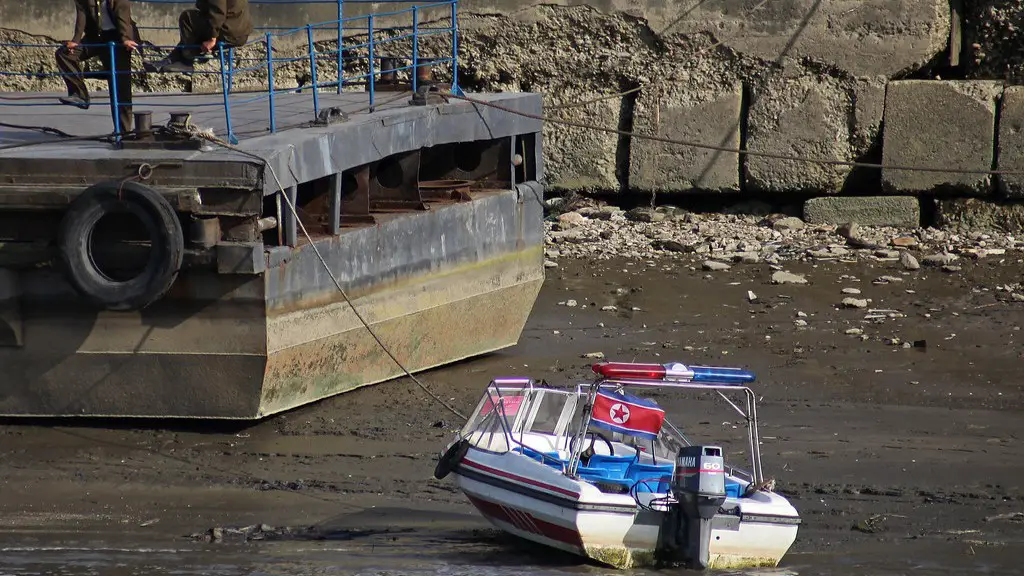Why Is It Hard To Leave North Korea
Leaving North Korea has become increasingly difficult in recent decades as the country has closed off its borders due to the intense isolationism and tight control on citizens. It means that not only is it difficult for people to exit the country, but also that North Korea has been able to keep a grip on the stories, images and information that leave its borders.
North Korea is the most isolated countries in the world and has the most restrictive rules governing the movement of its citizens. It is almost impossible to exit the country and those who manage to do so often face hardships along the way.
One of the main issues that make it difficult for North Koreans to leave the country is because of the government’s strict anti-defection laws which make it illegal for citizens to defect. Any attempts to defect will be strongly punished, with punishments ranging from long prison terms to death. The government also keeps a tight rein on the borders, making it difficult for those who manage to leave to do so without being detected.
There are also various economic and social factors that make it difficult for North Koreans to escape the country. Many North Koreans are unable to leave due to poverty, as they lack the money to fund the journey. Those who manage to get out of the country often have to travel through dangerous and difficult terrain in order to reach a safe destination, which can be a long and arduous journey.
Political exile is another factor that makes it hard for North Koreans to leave their country. Often those who are granted political asylum in other countries fear coming back to North Korea, as they may be viewed as traitors and punished severely.
The situation in North Korea is further compounded by the fact that there is very little accurate information available about the country and its people. This means that those wishing to leave are often unable to get accurate information about where to go, or how to make their journey safely.
It is clear therefore that the reasons for why it is difficult to leave North Korea are varied and complex. The evolution of the country’s strict anti-defection laws, the poverty and social exclusion faced by many citizens, and the lack of information about the country all combine to make it almost impossible for many North Koreans to escape their homeland.
Underground Networks and Human Smuggling
As it is so hard for North Koreans to flee the country, there are various underground networks and channels that have been set up in recent years, which allow people to make their way out of the country. Many of these networks are at great personal risk and those involved are often living in fear of being caught by the North Korean authorities.
Such networks often involve the help of human smugglers and traffickers, who have links to North Korean government officials and provide their services for a fee. These smugglers often put refugees at great risk, as they rely on bribes, forgery, and other means in order to enable safer passage for their clients. However, even then, refugees making their way out of North Korea face various dangers and risks, from arrest and extradition to kidnappings or even death.
The use of underground networks and human smuggling to help North Koreans escape the country has highlighted the limitations placed on citizens and the desperation they feel to flee the country, either in search of a better life or due to political and social persecution by the government.
Although these methods are often dangerous and risky, for many North Koreans the choice is clear; endure the risks associated with human smuggling in order to escape persecution or stay in a country where life is often unbearable.
The Displacement of North Korean Refugees
Many of the North Koreans who flee the country often find themselves in a new and unfamiliar environment with no support network or basic rights. Their journey is often long and arduous and can end with little safety or security for them in their new home.
It is estimated that in excess of 500,000 North Koreans have already fled the country, with most of the current refugee population settling in China, South Korea, and Japan.
However, these countries, who previously had relaxed their refugee policies, have recently imposed ever stricter regulations on North Korean refugees, making it harder and harder for them to integrate and find safety.
This makes it harder for North Korean refugees to escape the country as they have nowhere to go and can easily be tracked down and repatriated by the North Korean government. As such, many North Korean refugees feel they have no choice but to remain in their host countries, where they often face difficulty in accessing basic rights, such as language classes, medical care and employment.
The displacement of North Korean refugees is a worrying development for the international community, particularly as the North Korean government’s policies remain unchanged, and the country’s borders are firmly sealed.
International Aid Efforts
The international community has recognized the difficulties that North Koreans face and has undertaken various aid initiatives in recent years which provide help and assistance to refugees. These initiatives are focused on providing food, shelter, education and medical care to those who have managed to flee the country, as well as providing assistance to those still in North Korea.
The international community has also provided North Korean refugees with the opportunity to resettle in other countries, although the process is often slow and difficult. It is hoped that, with the help of the international community, more North Koreans will be able to escape persecution and find safety in other countries.
The international community has also been active in providing support and assistance to those interested in escaping North Korea. Various NGOs and organizations help facilitate the journey of North Korean refugees and provide them with education, healthcare and financial assistance.
However, despite these efforts, the reality is that it is still extremely difficult for North Koreans to escape the country due to the oppressive nature of the government and its control over the borders.
The Impact of International Sanctions
It has been argued by some that international sanctions imposed on North Korea have had a negative impact on the ability of North Koreans to escape the country. The sanctions have damagingly affected the country’s economy, with the lack of resources making it harder for those seeking to escape to find the financial backing or supplies necessary for the journey.
The sanctions have also had a negative impact on legal and political channels available for North Koreans who try to escape their country, as the government has put restrictions on international aid to the country. This means that many NGOs and organizations are struggling to get aid and support to those who need it the most in North Korea.
Mohammed Ali Ehsan, a Research Associate at Human Rights Watch, has argued that international sanctions are having a damaging impact on the ability of North Koreans to escape the country. He claims that the sanctions are making it more difficult for North Koreans to get access to basic goods and resources, as well as posing significant barriers to the delivery of international aid to North Koreans.
It appears then that the sanctions imposed on North Korea have had a detrimental impact on the freedom of its citizens, making it harder and more dangerous for those wishing to flee the country.
Growing Pressure on North Korean Government
The international community has also called on the North Korean government to introduce reforms to ease restrictions on its citizens, such as loosening its anti-defection laws and allowing for greater freedom of movement both within the country and across its borders.
In recent years the international community has put increasing pressure on the North Korean government to introduce these reforms, including from the United Nations and other international organizations. This pressure has been seen in the form of various sanctions, as well as diplomatic and economic sanctions by the international community.
However, despite this pressure, the North Korean government has refused to budge, claiming that the reforms would undermine its control and authority over its citizens. As a result, the situation for North Koreans wishing to flee the country remains bleak.
It is clear that the situation for those living in North Korea is not improving quickly enough and it remains hard for its citizens to escape the country. It appears that the only way that this may be possible is if the North Korean government takes serious steps to make it easier for its citizens to leave the country, and allow for greater freedom of movement and access to resources for those wishing to make the journey.





